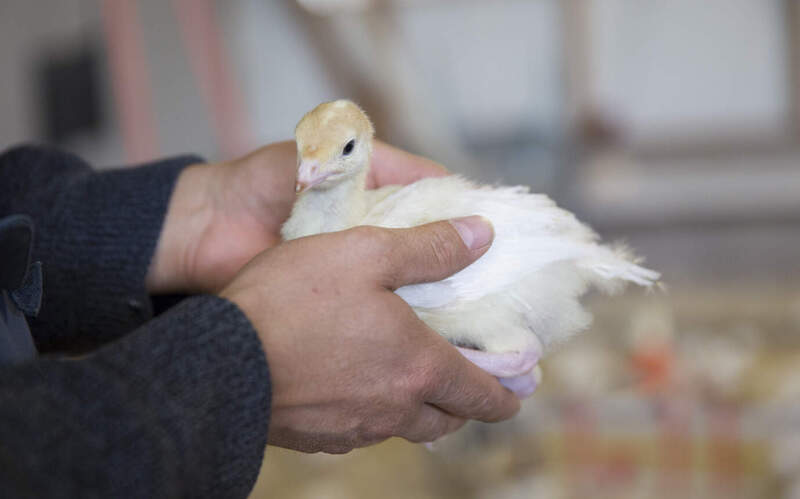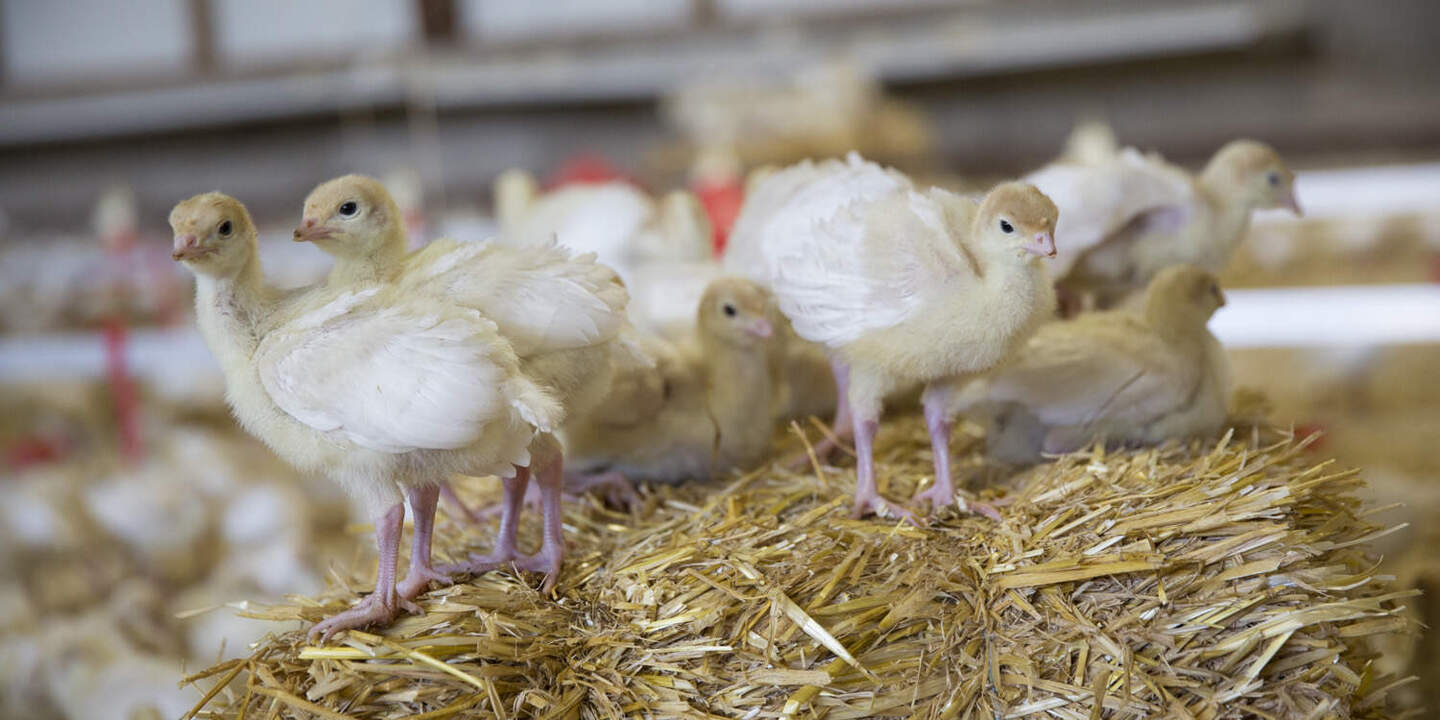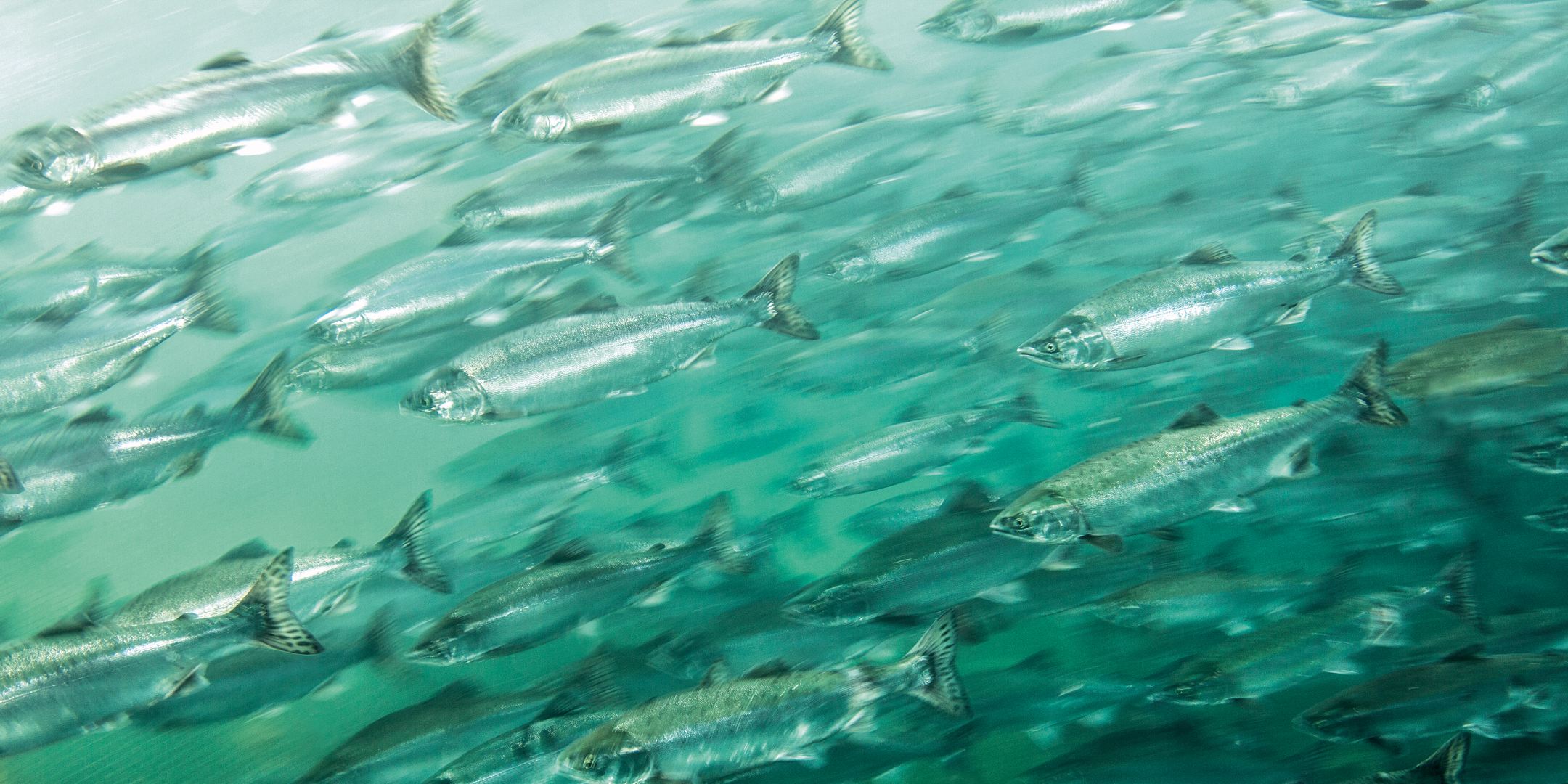Swiss minimum standards and beyond
The voluntary Federal programme for "particularly animal-friendly stabling systems PAS" applies higher animal welfare standards than the Swiss Animal Welfare Act. Bell already started to progressively introduce the PAS requirements at poultry fattening farms outside Switzerland in 2013. The Swiss minimum standards are thus not only fulfilled abroad, but exceeded.
In 2016, the Bell Food Group acquired the Huber Group. This family company with some 900 employees specialises in the production of poultry meat. With this acquisition, Bell reacted to rising demand for high-quality poultry products. "Swiss consumers set great store by animal welfare, and this is an important aspect in their decisions to buy specific products. We also want to meet consumers' expectations regarding animal welfare for imported meat. This is why Bell and Coop started the 'PAS project' for imported poultry products in 2013," explains Basil Mörikofer, project manager for Sustainability at Bell Switzerland. The Huber Group is an important partner in this project.

The provisions of the Swiss Animal Welfare Act set out the minimum requirements. But Bell goes a step further and is introducing the Swiss PAS programme at foreign poultry fattening farms. With the animal welfare programme "particularly animal-friendly stabling systems PAS", the Federal government promotes animal husbandry in Switzerland that takes better account of the needs of farm animals. Swiss animal welfare legislation is considerably stricter than the EU's animal husbandry requirements.
In the EU, poultry may be kept without daylight and the stocking density per square metre is relatively high. The standard stocking density in Germany for turkeys is 58 kg per square metre, but only 36.5 kg is permitted in Switzerland and natural daylight is compulsory in poultry houses. The PAS system also prescribes higher perches and access to fresh air in a protected outdoor area (winter garden) that has to account for at least 20 percent of the size of the coop. The implementation of the PAS project involves an intensive search for suitable partners and intensive development work over several years. Farmers have to be informed and convinced to make the required investments. Building permits have to be obtained, poultry houses have to be converted or new ones built, and the fatteners have to be provided with advice. The participating farms are closely supported by Bell in this process. Bell and Coop carry out farm visits and independent units perform annual audits. Swiss Animal Protection SAP also supports the project with advisory services. "PAS certification for foreign poultry meat is new in Switzerland and an important milestone for our project," says Basil Mörikofer.

